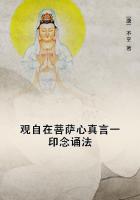It may be interesting at this point to look across the channel, and inquire what philosophy was doing on the continent.I begin with that country which was the ancient ally of Scotland.Both the Scotch and French philosophies professed to draw much from Locke; but they seized on very different elements.The Scotch followed him in his cautious spirit and {272} careful observation, but withstood from the beginning the rash hypothesis which derived all our ideas from sensation and reflection; and they called in, besides the external and internal senses, other senses as inlets, and in the end came to look upon them as being exercises of reason. The French looked exclusively at the other side of Locke's philosophy, at the experiential side, carrying Locke's theory a stage farther; they left out reflection, made little use of observation, betook themselves to analysis, and exerted their ingenuity to derive all ideas from sensation.Condillac (born 1715, died 1786), made all man's ideas, even the highest, such as cause and moral good, transformed sensations.Most of his works were written for the purpose of helping to educate a prince of Parma, and the author did not mean to undermine morality or religion.But the logical consequences of error follow it unrelentingly, and are apt to come out in practical issues which the authors of it never contemplated.If Condillac did not see, those who came after him clearly perceived that we could not, out of the mere materials supplied by the senses, extract, by any mental chemistry, the idea of moral obligation and of a spiritual God.Helvetius expounded a morality of self-interest; Cabanis evolved all thought out of organized matter, made the brain secrete thought as the liver secretes bile; D'Holbach showed that the issue was blank atheism; and licentious men and women were rejoicing in the thought that they had got rid of duty, of mind, and of God.The fruit of the whole was seen, not in the French Revolution, which was much needed, and would have come, with or without the philosophy, -- but in the direction which it took, and the atrocities which it perpetrated, and which caused it, unlike the English and American revolutions, to issue in a military despotism.By the close of the century, this philosophy had gone beyond ripeness to rottenness, and finer minds were turning away from it, and seeking for something better.The reaction started by Laromiguierre, and carried on more effectively by Royer Collard, and yet more so by his pupils Jouffroy and {273} Cousin, turned eagerly, as we shall see, towards the well-rounded philosophy of Reid and Stewart.
In Germany, philosophy took a very different direction.
Leibnitz had opposed Locke and his experiential method, and had imparted a speculative spirit and an ideal elevation to the German thinking; and Wolf had labored to reduce the whole to logical forms.And now, as the offspring of the two, of idealism and formalism, the true German philosophy came forth from the brain of Emmanuel Kant, who was born 1724, died 1804, and published his great work, the "Kritik der reine Vernunft" in 1781, which took a considerably revised form in 1787.That philosophy was already taking firm hold of the German mind, and has not at this day lost its grasp, notwithstanding the efforts of Darwinism and materialism to loosen it.As it differed from the French, so it also differed from the Scotch.In a sense, indeed, Kant's philosophy was transplanted from the Scottish soil.Kant's grandfather named Cant, a saddler, emigrated from Scotland; I and some think that he thence derived hereditarily his high conception of moral law: and he acknowledges that he was roused from his dogmatic slumbers by Hume's sceptical account of the relation of cause and effect But Reid and Kant, though both opposed to Hume, took up very different lines of defence.In respect of method, Reid followed the inductive method, with self-consciousness as the instrument of observation; whereas Kant inaugurated the critical method, as distinguished from the dogmatic method of Descartes on the one hand, and the empirical method of Locke on the other.The critical method takes upon itself to criticise all principles; but it can do so only by other principles, {274} avowed, or more frequently unavowed, -- and the question is started: How are these other principles to be judged? by other principles, and these by other principles without end? Or, if we must stop somewhere, the question is, Where? and, Why there? Every German metaphysician plants himself on his own stand-point, which he says cannot be disputed: but his neighbor disputes it or selects another; and there is a perpetual criticism, and an endless building, but without an undisputed foundation.In one respect, indeed, the two, the Scotch and German philosophies, were alike: both stood up for principles which did not derive their authority from experience.But the Scottish metaphysicians discovered these by a careful inquiry into the operations of the human mind; Kant, by a process of logical discussion.On another point they differed: the Scottish metaphysicians make our primitive perceptions or intuitions look at realities -- , whereas Kant stands up for <a priori> principles, which regulate experience and have only a subjective validity.Having allowed idealism to enter, there was no means of arresting its career.As Kant had made time and space, substance and cause, mere forms in the mind, Fichte was only advancing a few steps farther on the same road when he made the whole universe a projection of the mind -- , and, in the succeeding age, Schelling made it an intellectual intuition, and Hegel a logical process.Even as the French sensationalism led to atheism, so the German idealism culminated in pantheism.Every one will allow that the German philosophy had a much more elevated character, and a much more elevating tendency, than the French.Its influence on the great body of the German people may not have been so great as that of the Scottish philosophy on the Scottish thought.On the other hand, its influence has been vastly greater on literature, to which it has imparted a high ideal character, as seen especially in the poetry of Germany, and of other countries which have borrowed from it.{275}















